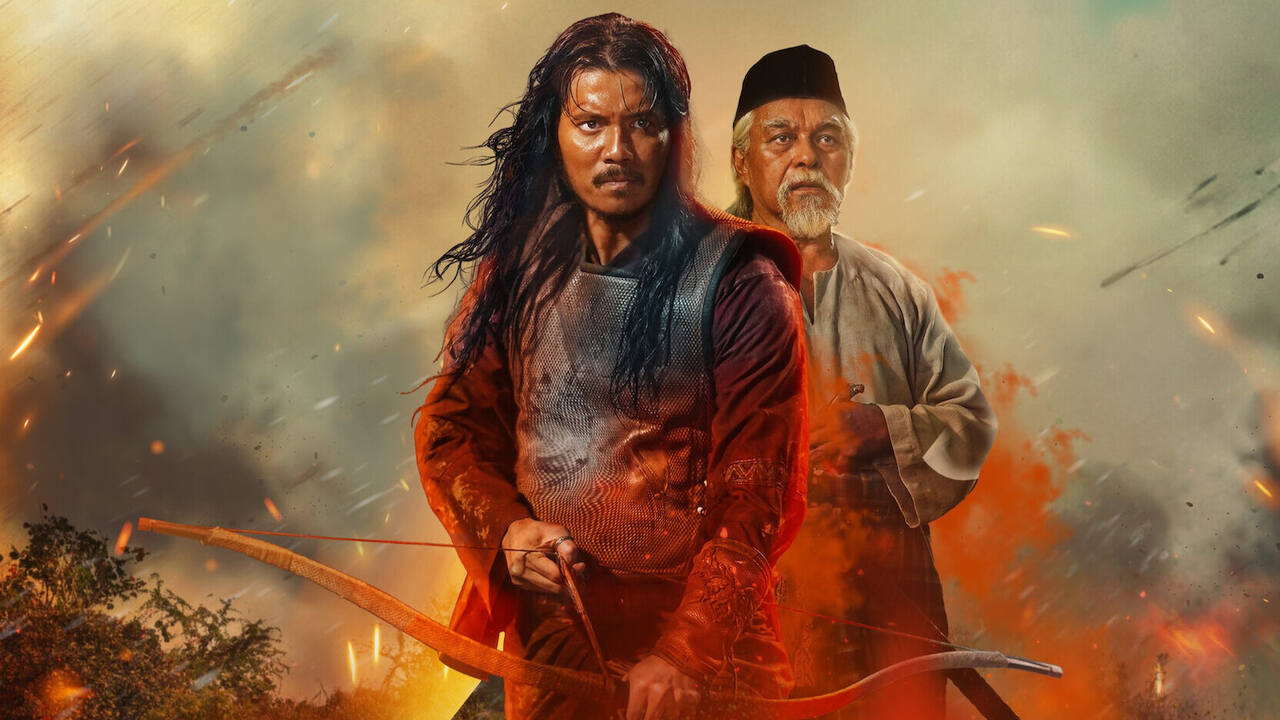
Let’s dive into Warrior Awang and Master Tok Gajah, a movie that sounds epic, looks epic, and then proceeds to trip over its own sword in the most hilarious ways possible. Directed by Saiful Reza Shukor and Shaharudin Md Dali, this film wants to combine action, history, and a sprinkle of comedic charm but ends up feeling like a badly choreographed dance at a family wedding.
First off, the plot: we’re thrown into the world of colonial Malaysia, where our hero, Awang, fights against oppression, loss, and the kind of historical drama that gives you whiplash. Imagine a serious fight for freedom while your sidekick is busy slipping on banana peels. You get the gist. The film attempts to pay homage to legendary warriors like Mat Kilau while peppering in moments of humor, which is a noble effort, but the execution feels like it was written on a napkin during a lunch break.
Now, the cinematography! One could say it captures the lush landscapes of Malaysia beautifully, but then you realize that those scenic shots could easily double as a travel brochure—if only they weren’t so out of place in a high-stakes action film. The battles, designed to showcase heroism, often feel more like staged reenactments at a community theater rather than epic confrontations. It’s as if someone shouted, “Action!” and the cast responded with, “Where’s the script?”
The characters, bless their hearts, are a mixed bag. Awang, played by Fattah Amin, carries the weight of the story on his shoulders—along with the burden of being the most serious person in a cast of clowns. His mentor, Tok Gajah, attempts to lend wisdom, but their dynamic often feels like a sitcom duo trying to solve a mystery that no one cares about. Watching them together, I couldn’t help but wonder if they were more interested in their next coffee break than the fate of their homeland.
As for the villains, they might as well have come straight from a bad cartoon. The evil colonialists are so one-dimensional they could be mistaken for cardboard cutouts, lacking the menace required to make the audience feel any real tension. They might as well have cackled while tying Awang to the tracks, just to really lean into the cliché. When your baddies are less intimidating than your neighborhood's grumpy cat, you know something’s off.
Then there’s the dialogue. Oh, the dialogue. If you’ve ever watched a soap opera and thought, “This could use more cringe,” then you’re in for a treat. Lines are delivered with the emotional depth of a puddle, and the attempts at humor land with all the grace of a lead balloon. There’s a scene where Awang tries to rally the townsfolk, and instead of inspiring them, he sounds more like a motivational speaker who forgot his notes and is winging it with dad jokes. The result? The townsfolk look confused, and so does the audience.
Now, I don’t want to be completely negative here. The film has moments that could be described as “cute,” particularly when it leans into its comedic side. There are a few laughs to be had, especially when the supporting characters, who feel like they wandered in from another movie entirely, take center stage. They provide a lightness that momentarily distracts from the otherwise heavy-handed narrative. But just when you think it’s going to turn into a charming comedy, it whips back to seriousness like a kid on a rollercoaster trying to impress their friends.
And let’s not forget the music. The score tries hard to evoke emotion, but more often than not, it sounds like a compilation of royalty-free tracks that you’d expect to hear in a YouTube slideshow. You can practically hear the violins pleading for a better script as they try to pull your heartstrings during the film’s climactic moments. Spoiler alert: they don’t.
By the time the credits rolled, I was left pondering what I had just witnessed. Warrior Awang and Master Tok Gajah wanted to be an action-packed epic but ended up being more of a confused romp through history, like someone trying to bake a soufflé with pancake mix. It’s entertaining in the same way watching a toddler paint can be—messy, chaotic, and occasionally delightful but ultimately something you wouldn’t want to hang on your wall.
So, if you’re in the mood for a light-hearted film that’s more laughable than laugh-out-loud, Warrior Awang and Master Tok Gajah might just fit the bill. It’s not the hero we needed, but rather the comic relief we didn’t ask for. In a world of serious cinematic masterpieces, this one floats somewhere between "it’s so bad it’s good" and "Did I really just spend 110 minutes watching that?" It may not be a warrior's tale for the ages, but it certainly provides a chuckle or two for those willing to take the plunge.
Final Score- [4/10]
Reviewed by - Anjali Sharma
Follow @AnjaliS54769166 on Twitter
Publisher at Midgard Times
Hi Everyone, after a due consideration, we have decided that we will be open for donations to help us in managing our website. We will be greatful for any kind of amount we receive. Thanks!
— Midgard Times 🎬 (@Moviesr_net) January 4, 2026
PayPal- [email protected] pic.twitter.com/DlNNz5Npm5
Get all latest content delivered to your email a few times a month.
Bringing Pop Culture News from Every Realm, Get All the Latest Movie, TV News, Reviews & Trailers
Got Any questions? Drop an email to [email protected]